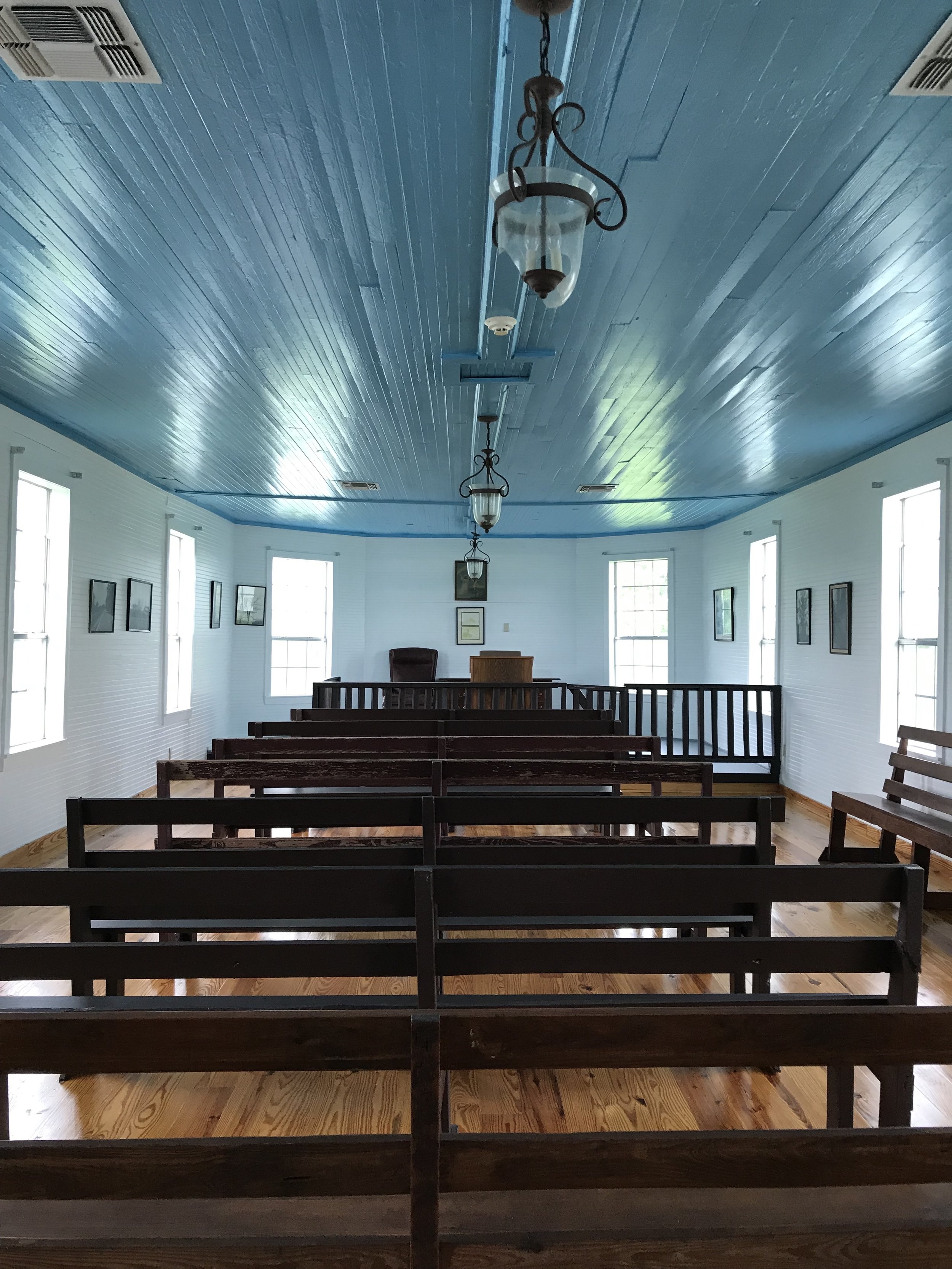We explore the city of New Roads this week to enjoy a change of scenery from the festive, bubbly New Orleans. New Roads is a small city, around two hours inland from New Orleans, that sits right above a short river near the Mississippi. With our bellies stuffed with delicious beignets and Po’boy sandwiches, we delve into our next book to examine the value of being part of a community.
A Lesson Before Dying, a novel by Ernest J. Gaines, tells the story of a young black man, Jefferson, wrongfully sentenced to death for a crime, and Grant Wiggins, a teacher who visits him during his last days, hoping to impart some wisdom before the execution. Together, they learn from each other as they challenge one another to see their own value as human beings.
We visit the jail cells in New Roads that Jefferson fictitiously stays in during his time left before death. The cells are located on the top floor of a courthouse building. Warm air pervades the area. The wallpaper on the ceiling is peeled off by years and years of wear. Thick, gray bars line several cell doors, closing space off from the rest of the world. The doors at the end of the halls are solid, with only a small rectangular opening for food. The single source of light in each cell comes through barred windows. I stand inside the last cell down the hallway, closing the door behind me, and the space immediately feels a bit suffocating. I think of Jefferson lying on a bunk, staring aimlessly out of the tiny, barred window in his cell. He is cut off from the community, both physically and mentally, as he is forced to spend the days before his death in the enclosed space with minimal outside contact and fails to realize his self-worth.
“Do I know what a man is ? Do I know how a man is supposed to die ? I’m still trying to find out how a man should live. Am I supposed to tell someone how to die who has never lived?”
Grant similarly feels hatred within himself and towards the community, failing to see the point of trying to teach Jefferson something if he is going to die anyways. He has people around him who love and care about him, but Grant does not truly accept that attention as he lives in a bubble of cynicism. This jail perpetuates those feelings of frustration and bitterness as it creates an isolated space, disconnected from the community. The difficulty of escaping from a place like this further contributes to an air of hopelessness. When I walk down the streets of this sleepy town, I also feel a bit of disconnection since there are no pedestrians out and about. This is, perhaps, exacerbated by the fact that the river the city is built on, the False River, is not connected anymore with the Mississippi.
However, soon enough, I notice that the concept of a community might just take on a different interpretation here. We go visit the author, Ernest Gaines, in his home. He has a small church on the land behind his house that is symbolic of the church Grant teaches in throughout the novel. The inside is lined with photographs and bursts of light flood in through the windows. Despite its compact size, rows and rows of seating fill the space. I think of the children Grant teaches. All of the colored children in Grant’s town who have gone to school have passed through this church at some point in their lives. Thus, this place brings together Grant and Jefferson’s black community so that they can learn together amidst the families’ difficult lives out on the plantations. It seems like having a community doesn’t always mean being able to join the bustling crowds in New Orleans; rather, in this area, it can mean congregating in a quieter, more intimate place where everyone knows and cares for each other enough that sacrificing yourself for someone else is worth the hurt, pain, and lies.
Gaines tells us about his life on the plantation. The house is his, but not all the fields and fields of corn behind it. Growing up, he lived on a plantation in this area. Just like Grant, he moved from Louisiana to California and back. To him, this place has a special place in his heart. His community here keeps him tethered to the place. Similarly, Grant’s loved ones constantly remind him to stay, to fulfill his duty as a teacher and give the black people in the town a voice. Galvanized by their words, Grant teaches Jefferson to accept his own worth.
““Tell Nannan I walked.” And straight he walked.”
I came on this trip stumbling, frustrated with my own inadequacies. However, I found a community in this group of Bookpackers. This community of friends have reminded me that despite who I am, I can still walk. Anyone can walk. You just have to believe you are worthy enough to do that.
Finding a community, no matter what that means to us, where it is, or how we find it, is worth all the time and effort. Without it, we are broken and hurt. With it, we realize how much potential we have to become better students, teachers, and people. We teach each other compassion, empathy, and love. And maybe just a thing or two about life.




